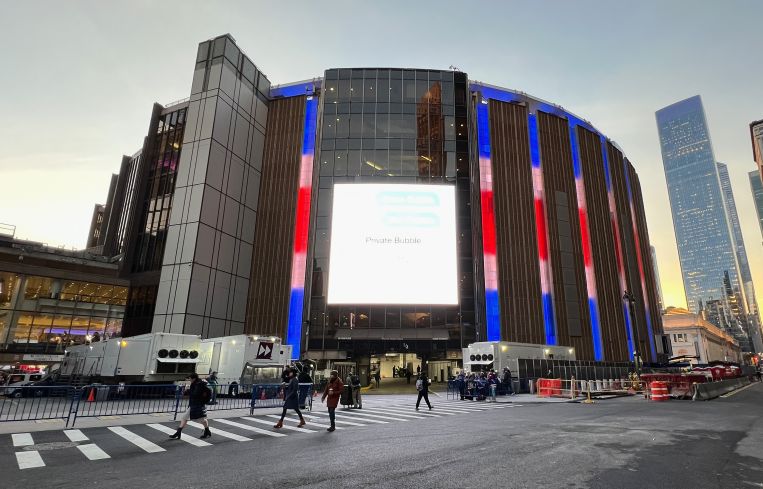Manhattan Community Board 5 Calls on City to Deny MSG’s Permit Renewal
By Mark Hallum April 14, 2023 4:09 pm
reprints
If the New York City Council listens to Manhattan Community Board 5, then Madison Square Garden’s permit renewal may be denied.
The board, an advisory body designed to show the community’s wishes to city lawmakers, approved a resolution Thursday night saying its members are in favor of either denying Madison Square Garden’s application to renew its operating permit outright or limiting a renewal to no more than three years, Crain’s New York Business first reported.
“There may be realistic sites elsewhere in Manhattan and especially in CB5, and a good faith effort by all parties … must be made now to find an adequate, sustainable and permanent solution,” the resolution read. “CB5 recognizes that issuance of a 10-year permit in 2013 did not accomplish the stated goal to ‘give ourselves time’ to develop a permanent plan and urges all parties to not repeat this mistake.”
The question of whether the arena that opened in 1968 should remain above Pennsylvania Station, spurred by the drive to renovate the transit hub from its current insufferable conditions, has been on the minds of activists and lawmakers for years.
“The special permit process is not about whether Madison Square Garden should move, and we have no plans to do so,” an MSG spokesperson said in a statement. “We remain committed to enriching our community and continue to work collaboratively with all key stakeholders throughout our public review process.”
Up to 1,162 columns supporting MSG above Penn Station make upgrading or expanding the transit infrastructure below unfeasible. Nevertheless, the renovations, being conducted by the Metropolitan Transportation Authority need to be made in accordance with the 2018 Penn Station Act and could cost up to $7 billion.
MSG’s permit expires July 24, and discussions have seen MSG Executive Vice President Joel Fisher stating during a CB5 meeting in February that the arena would consider moving if it didn’t have to travel far. In this case, he was referring to a parcel at Seventh Avenue, between 32nd and 34th streets, the New York Post reported at the time. Another location pitched to house the Garden was Hudson Yards.
Before agreeing to move nearby, MSG CEO James Dolan has been resolute that it would not be giving up its spot no matter how long it means that commuters will be cloaked in darkness.
Madison Square Garden bought the air rights above the site of Penn Station in 1962 as the original structure was still being demolished. The loss of the airy, light-filled old station was a dispiriting blow to many New Yorkers.
CB5’s resolution played heavily on this history.
“Up until this time, there was a generally held belief that architecture was expendable, and that its loss would be more than justified by new development,” the resolution’s text reads. “However, the loss of the original Pennsylvania Station fueled the historical preservation movement in New York that led to the creation of New York City’s Landmarks Preservation Commission.”
The Garden has also received some of the most beneficial tax breaks among the other stadiums in the city because it does not pay property taxes or payments in lieu of taxes. The Independent Budget Office recently found that MSG’s property tax break costs the city $42 million a year in missed revenue — since the New York City Department of Finance pegged the arena’s value at $867 million — and some New York state legislators have been pushing to repeal that break.
Mark Hallum can be reached at mhallum@commercialobserver.com.



